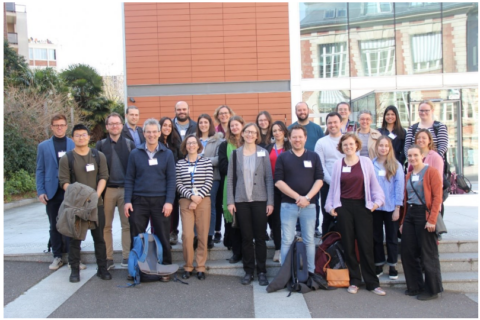FAU team receives funding for research into flavivirus vaccine

Tracking down the secret behind the successful yellow fever vaccine
Yellow fever, dengue fever, tick-borne encephalitis, Japanese encephalitis and other infectious diseases, some of them dangerous, are triggered by pathogens from the flavivirus family. A very effective vaccine is available for yellow fever that provides protection lasting several decades. The protection provided by vaccines against dengue fever, tick-borne encephalitis and Japanese encephalitis is much weaker, however, and no vaccines are available at all for other flaviviruses. Together with 12 international partners, coordinated by the Institut Pasteur (Paris), a team of researchers from Friedrich-Alexander-Universität Erlangen-Nürnberg (FAU) is now investigating how the secret behind the success of the yellow fever vaccine can be transferred to other infections triggered by flaviviruses. The FAU researchers have received 727,000 euros in funding within the context of the EU Horizon initiative.
As a result of climate change, diseases triggered by flaviviruses are becoming more commonplace in Europe. Changing environmental conditions have led to mosquitoes, flies, ticks or fleas (known as vectors) that transfer these diseases by stings or bites becoming established in areas outside their original habitats. Diseases transmitted by vectors account for approximately 17 percent of all infectious diseases worldwide. The World Health Organization WHO estimates that 80 percent of the world’s population are in danger of contracting one or more of these diseases. The importance of the search for effective, lasting protection against diseases triggered by flaviviruses is underlined by the fact there are no specific antiviral therapies against flavivirus infections.
The FAU working group led by PD Dr. Kilian Schober from the Institute of Microbiology – Clinical Microbiology, Immunology and Hygiene at Uniklinikum Erlangen plans to compare the T cell response after a vaccine against the yellow fever virus with the T cell response to vaccines or infections with other flaviviruses. T cells are immune cells that play a central role in fighting viruses within the human body. A vaccine with weakened components of pathogens or killed pathogens trains the T cells. If the virus penetrates the body again, they then recognize the pathogen quicker and take action to render the viruses harmless. That prevents the infection from breaking out.
A single vaccination against yellow fever triggers a strong T cell response with an immunological memory lasting several decades and offering lasting protection against the disease. The protection against other flaviviruses such as the viruses that trigger dengue fever, tick-borne encephalitis or Japanese encephalitis is considerably weaker. The team led by Kilian Schober now wants to find out whether one of the reasons for this difference may be the different T cell responses. A direct comparison of T cell responses to different vaccines against different viruses from the same family of viruses may allow the researchers to determine what makes the yellow fever vaccine so special. The results may make vaccines against other flaviviruses more effective or lead to breakthroughs in new vaccines where none are currently available.
As well as FAU, other prestigious research institutes in Belgium, Germany, Finland, France, Italy, the Netherlands and Columbia are involved in the project Yellow4FLAVI, which has received a total of 8 million euros in funding from the EU.
More details on the Yellow4FLAVI research projectFurther information:
PD Dr. Kilian Schober
Chair of Microbiology and Infection Immunology
Phone: + 49 9131 85 32644